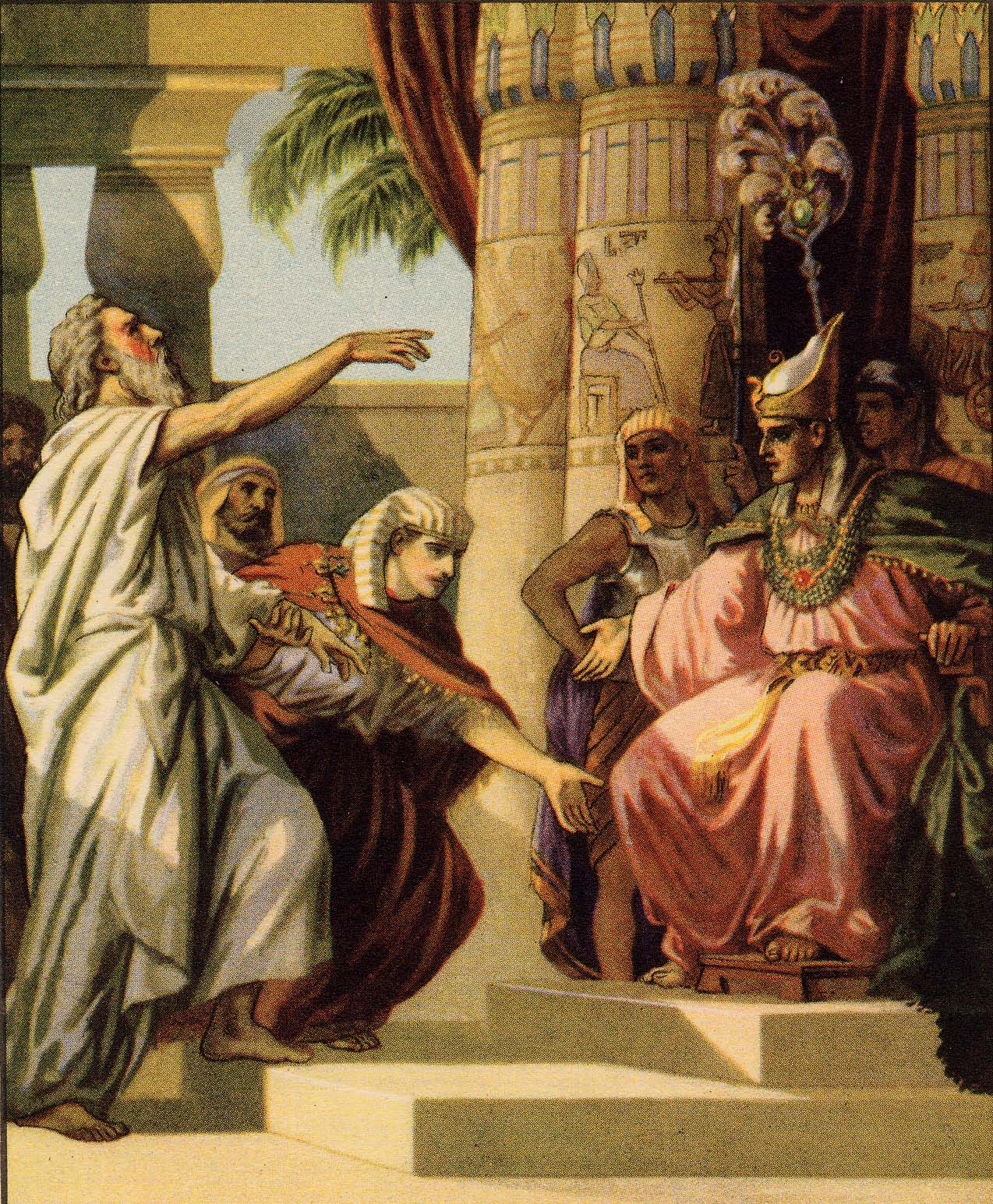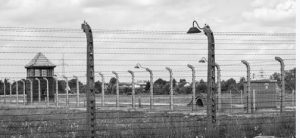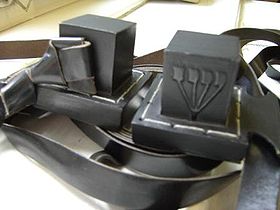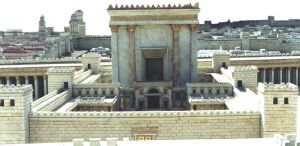 Parashat Vayechi
Parashat Vayechi
This week’s Sedra starts off with Jacob, at the end of his life, calling to his beloved son Joseph, and asking him not to bury him in Egypt (where they had lived together for the last seventeen years). He uses unusual language: “Please – if I have found favour in your eyes”.
This seems a rather strange way for a father to talk to his son! Rav Zalman Sorotzkin zt”l explains that he spoke humbly not because he viewed Joseph as his superior, but because “there is no authority on the day of death.” When a man is dying, he no longer feels the power, authority, pride or greatness he once did. At that moment, even the head of the family addresses his son beseechingly.
Rashi tells us that now he realised that his son Joseph was truly righteous. What – only now? Is this the same Joseph who resisted the wife of Potiphar? Joseph had been a ‘tzaddik’ for many years! Surely this was a ‘delayed reaction’ on the part of Jacob, to say the least.
Not so, continues Rav Zalman. When a man becomes king of a foreign country, he strives to show that he loves his new land with all his soul. Sometimes he makes himself more patriotic than the natives. How happy is he if he can point to the grave of his father in his new land, thereby proving that he is already a second-generation citizen. It is certainly a mistake for such a ruler to take his deceased father for burial in his old homeland (in this case, Canaan). His subjects, believing that he still misses his homeland and is unacclimated to his new country, may complain, “Look at the stranger who judges us.” Jacob therefore feared that Joseph would be unwilling to bury him in Canaan, or at least make no effort to do so, lest he lose favour with Pharaoh and the Egyptians. However, Joseph not only swore to bury Jacob in Canaan, but promised to command his children to do the same for him. It was this act of piety which so impressed Jacob. Although Joseph had his position in Egypt to worry about, he was still willing to fulfil his father’s request. What a mentch!
Rashi also comments that kindness which is shown to the dead is true kindness, for one who does chesed for a dead person certainly does not look forward to any payment. When someone does something for another person so that the person will in turn do him favours, that action cannot be in turn considered true kindness. Rather, it is a form of bartering in which the merchandise is not goods but favours. Whenever you do something for others, have their benefit in mind, not your own. If however, a person always thinks to himself: “What will I gain from this?” when he does favours for others, it shows that he lacks a feeling of love for his fellow man, for his love is only for himself. Consider the following story:
When Rabbi Moshe of Kobrin was seven years old, there was a severe famine in Lithuania. Poor people wandered from village to village in search of food. Many of them flocked to the home of Rav Moshe’s mother, who readily cooked and baked for them. Once a very large number of poor people came to her home, and she had to cook for them in shifts. When some individuals got impatient and insulted her, she began to cry, since she felt that she was doing her utmost for them. Her seven year old son, the future Rabbi of Kobrin, said to her, “Why should their insults trouble you? Don’t their insults help perform the mitzvah with sincerity? If they had praised you, your merit would be less, since you might be doing the kindness to gain their praise, rather than to fulfil the Almighty’s command.”
Next thing we know, Jacob becomes ill. Our Sages tell us that Jacob was the first man in history to experience illness before death. We are also told that he had actually prayed for this. Why? This was because he found it hard to rebuke his sons. We are told (Sifrei, Devarim) that one should not rebuke a man until one is near death. Jacob therefore prayed to be bedridden before death, so that he would know when to exhort his sons and rebuke them. We also find this with Moshe (see previous Gur Aryeh!) who rebuked the people of Israel just before he died.
Firstly, though, Jacob blesses the two sons of Joseph, Efrayim and Menashe. He placed both of them on an equal footing with the other tribes (even though they were his grandsons). Evidence of this is in the numerical value of their names, which equals the numerical value of “Reuven V’Shimon”. The two sons of Joseph had the same rights as these two sons of Jacob, and many years later, in the desert, these two tribes had their own banner. Jacob later blesses Joseph, lifting him up to the level of the Patriarchs (as the Torah testifies: “The sons of Jacob and Joseph”).
Jacob then assembles all his twelve sons. He prayed that Hashem should forever listen to their prayers in times of need, and proceeds to bless them individually. He urges them to stay together in unison, so that then they will be worthy of the ultimate redemption through Mashiach. He was about to reveal when this was, when the Divine Spirit departed from him. He was unable to speak further: though he knew his sons would be loyal to G-d even if they knew that the redemption would take a long time, G-d decided that this date must remain concealed, as future generations might despair if they knew that Mashiach was still a long way off.
After blessing his sons, Jacob dies a painless death, and his soul departed to join his forefathers in Gan Eden. He is one of the six people over whom the Angel of Death had no authority – he died from the kiss of G-d. Joseph falls upon his father’s face and kisses him. Rav Chaim Ben Attar comments that it is bad to kiss a corpse because its impurity is passed on to the one who embraces it. How was this possible? Jacob was an exception: in a higher sense, he continued to live.
Joseph asks permission from Pharaoh to bury his father in Canaan, and it is granted. The funeral procession was huge. The same angels who had protected Jacob during his lifetime now followed the people, and protected and accompanied Jacob in death. All the inhabitants of Egypt joined in the mourning for Jacob, because it was known that as a result of his blessing, the Nile had risen again to overflow the land and put an end to famine. When Jacob died, the famine started again. The Egyptians mourned him for seventy days, and even went as far as covering their horses and donkeys with sacks of mourning.
On their way back from Canaan, Joseph visits the pit that he was thrown into by the brothers. They thought that now he planned revenge and wanted to kill them – in reality, he had only stopped there to recite the blessing, “Blessed be He Who performed a miracle for me in this place.” The brothers sent Bilha’s children to tell Joseph that before his death, Jacob had commanded that he forgive them for their deed. This was not true. Jacob did not even know of the sale, and further, he understood that Joseph was righteous and would not harm them, even if they had treated him badly. From here we see that for the sake of peace it is permissible to tell a white lie – provided that it harms no one.
Joseph told the brothers not to fear, he would not harm them. He also said that he would support them during the famine. However, notes Rabbenu Bechaye, we do not see explicitly that Joseph forgave the brothers. The Gemara says that if one sins against someone else, even if he is truly penitent, the sin is not absolved until he has been forgiven. For this reason, ten important Sages in a later generation died.
When Joseph died, at 110, the Egyptian magicians put his corpse in an iron coffin which they sank in the depths of the Nile in the belief that it would bring a blessing to the river. However, Joseph had bound his brothers with an oath to carry him to Israel when they would leave Egypt. In fact, Joseph merited having Moses himself carry his bones. When the people of Israel left Egypt, Moses took a silver plate and inscribed on it the words “Rise up, ox, rise up ox!” – referring to Joseph, whose strength was likened to that of an ox. But the coffin did not rise. Moshe then cried, “Israel is leaving Egypt, and the Holy Spirit is awaiting you! Do not delay, come out from the river. If you do not arise, then we will no longer be bound by your oath!” At these words, the coffin floated upwards. Because Moshe in person occupied himself with the transfer of Joseph’s remains, he was found worthy of having G-d himself bury him. From this we learn that when one fulfils a commandment by himself, and not through a messenger, his reward from G-d is great. All the tribes carried the bones of their forefathers – Reuben’s children carried his bones, etc.
One after another, Jacob’s sons passed away, with Levi enjoying the greatest longevity. Benjamin at the end of his life was still free from sin. He was a perfect tzaddik. His death was only due to the decree of the Almighty who ordained death upon mankind after Adam’s sin.
Fifteen things you probably never knew about Joseph
1 The embryos were switched in the wombs. Joseph was transferred to Rachel’s womb, and Dina to Leah’s womb (Targum Yonasan, Bereishis 30:21).
2 Jacob took the birthright away from Reuben and gave it to Joseph (Bava Basra 86:6).
3 He was a true Nazirite. Throughout the 22 years that he didn’t see his brothers, he did not taste wine (Bereishis Rabbah 98:20).
4 The money that the righteous Joseph gathered in Egypt filled three towers, each of which was 100 cubits cubed. He gave it all to Pharaoh without taking out so much as five silver pieces for his sons, for he was trustworthy (Midrash Al Yishallel).
5 Joseph went to great lengths to honour his father. Furthermore, he did not enter the room when his father was alone, lest [his father] ask how his brothers had treated him. [this might result in Jacob’s] cursing them and thereby destroying the whole world (Peskita Rabbasi 3:45).
6 When he left his father, he left without food and without an escort, which is why things turned out as they did (Zohar 1:210b).
7 [the brothers] said, “Let us set the dogs on him” (Bereishis Rabbah 84:14).
8 Joseph prostrated himself at the feet of each [of his brothers] so that they would take pity on him, but they did not (Bereishis Rabbah 91:8).
9 Joseph was afraid of the snakes and scorpions in the pit. He cried out, whereupon G-d hid the snakes and scorpions in the walls of the pit so that they would not hurt him (Sefer Hayashar, Vayeishev).
10 His service was [so] pleasing to his master [that] even from jail [Joseph] would go out to wash the cups, set the tables and make the beds (Midrash Hagadol, Bereishis 39:22).
11 Joseph went out of prison on the date [of the exodus from Egypt] (Shemos Rabbah 18:11).
12 With sorcery, the Egyptians made gold dogs that barked [so loudly] that if anyone approached [Joseph’s burial site], their voices could be heard throughout Egypt. Moses silenced them (Shemos Rabbah 20:19).
13 How did Moses know where Joseph was buried? Serach daughter of Asher showed him (Sotah 13a).
14 [sorcerers] threw [Joseph’s coffin] into the river. They said to Pharaoh, “Is it your wish that this nation never leave? If they do not find Joseph’s bones, they will never be able to leave” (Devarim Rabbah 11:7).
15 The evil eye has no power over the seed of Joseph (Berachos 20a).
SHABBAT SHALOM





